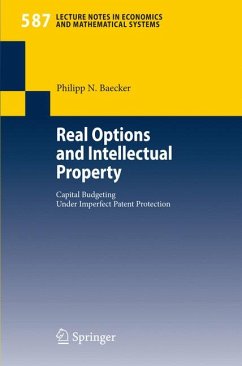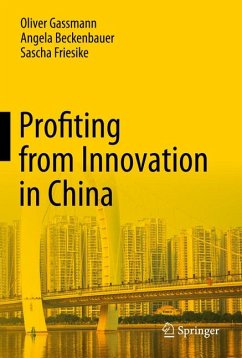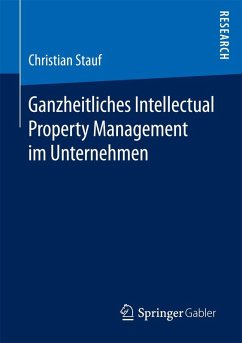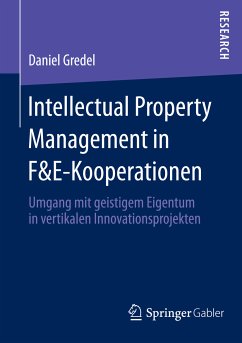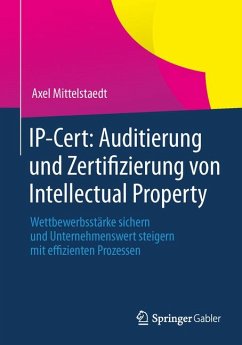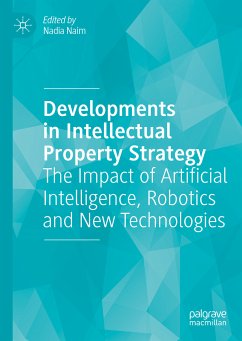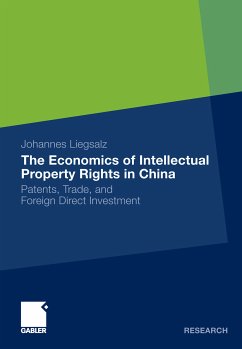
The Economics of Intellectual Property Rights in China (eBook, PDF)
Patents, Trade, and Foreign Direct Investment
Versandkostenfrei!
Sofort per Download lieferbar
Statt: 53,49 €**
40,95 €
inkl. MwSt.
**Preis der gedruckten Ausgabe (Broschiertes Buch)
Alle Infos zum eBook verschenkenWeitere Ausgaben:

PAYBACK Punkte
20 °P sammeln!
The protection of intellectual property rights (IPRs) is a contentious issue in developing and emerging economies. While countries like China are often reluctant to strengthen IPRs, industrialized countries complain about welfare losses in their markets due to foreign counterfeiting and piracy. In this context, Johannes Liegsalz empirically analyzes the legal framework and the economic relevance of patents in the People's Republic of China. His results show that IPRs play a vital role in contemporary China and that they have a positive impact on international trade flows and foreign direct inv...
The protection of intellectual property rights (IPRs) is a contentious issue in developing and emerging economies. While countries like China are often reluctant to strengthen IPRs, industrialized countries complain about welfare losses in their markets due to foreign counterfeiting and piracy. In this context, Johannes Liegsalz empirically analyzes the legal framework and the economic relevance of patents in the People's Republic of China. His results show that IPRs play a vital role in contemporary China and that they have a positive impact on international trade flows and foreign direct investments.
Dieser Download kann aus rechtlichen Gründen nur mit Rechnungsadresse in A, B, BG, CY, CZ, D, DK, EW, E, FIN, F, GR, HR, H, IRL, I, LT, L, LR, M, NL, PL, P, R, S, SLO, SK ausgeliefert werden.



